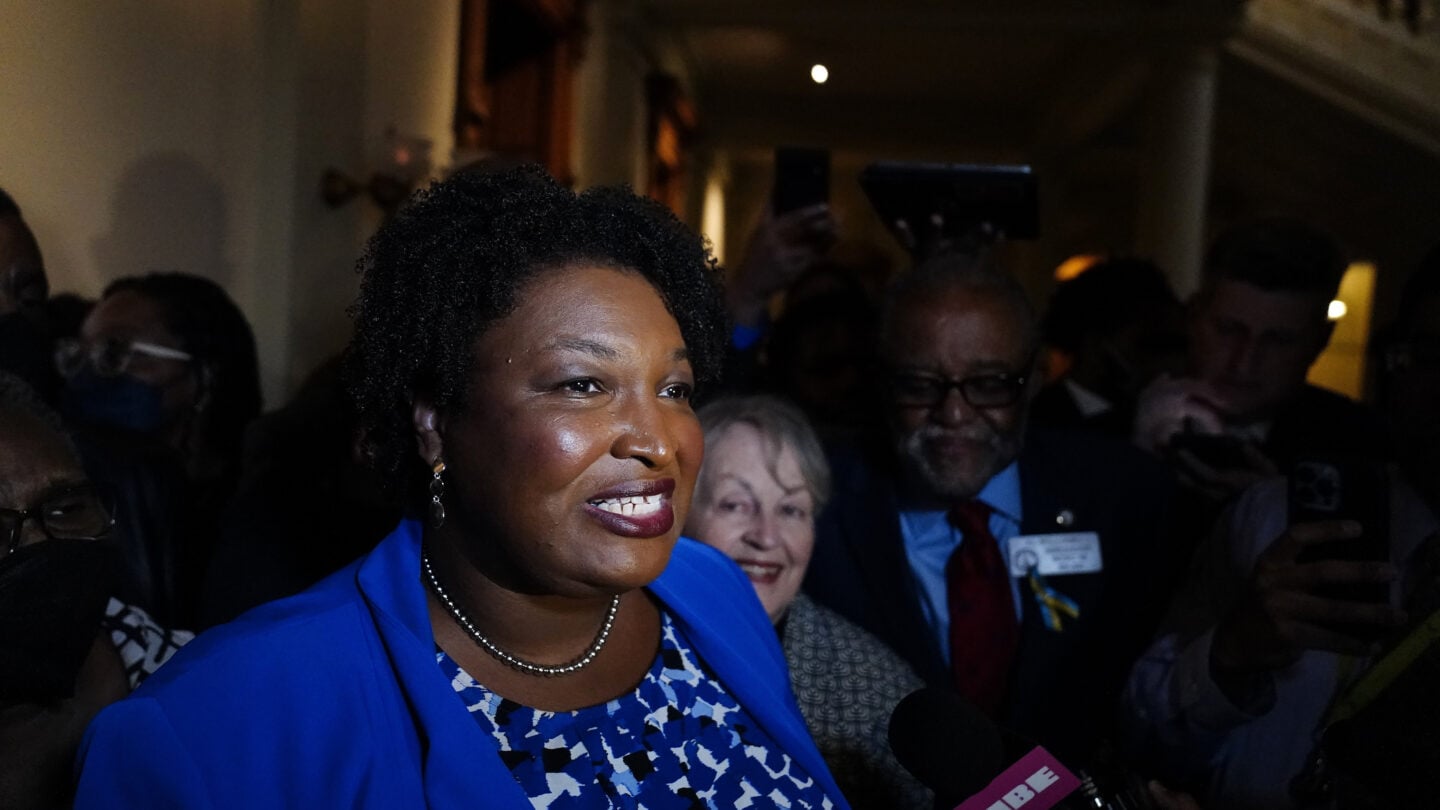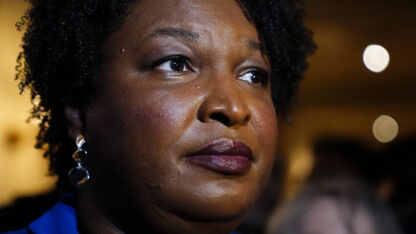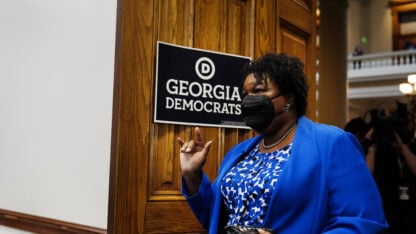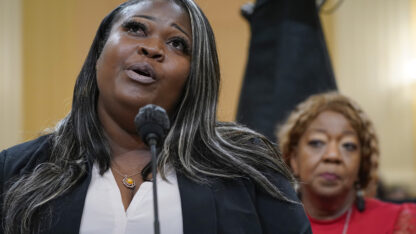Democrat Stacey Abrams’ campaign asked a federal judge on Wednesday to shut down unlimited contributions to a committee controlled by Republican incumbent Brian Kemp.
The filing is yet more litigation over the constitutionality of a 2021 Georgia law that allows certain top elected officials and party nominees to create “leadership committees” that can raise campaign funds without limits and coordinate spending with campaigns.
The judge earlier denied a request by Abrams to start taking unlimited amounts before she clinches the Democratic nomination on May 24.
Kemp narrowly beat Abrams in 2018, and they would match up again if Kemp survives a Republican primary challenge from former U.S. Sen. David Perdue and others.
The law allows the governor and lieutenant governor, opposing major party nominees, and both party caucuses in the state House and Senate to form leadership committees. Donors can give as much as they want, while they can’t directly give candidates for statewide office more than $7,600 for a primary or general election and $4,500 for a runoff election. Opponents say the law unconstitutionally favors incumbents over challengers, because they can raise limitless sums for years ahead of an election.
Abrams’ new move is hardly a surprise. U.S. District Judge Mark Cohen told her lawyers during an April 11 hearing that the right route to challenge the Georgia law was to go after Kemp’s Georgians First committee. Days later, Cohen rejected the campaign’s request to allow Abrams to raise unlimited money through her One Georgia committee before the May 24 primary, even though Abrams is unopposed for the Democratic nomination.
The Abrams campaign now wants Cohen to include Georgians First in the suit, saying Cohen should ban the Kemp committee “from soliciting or accepting contributions unless and until Gov. Kemp is formally selected as the Republican Party’s nominee for governor of Georgia, or alternatively, until plaintiffs are permitted to raise and spend campaign funds through One Georgia on the same terms as Georgians First.”
During the April 11 hearing, Abrams’ campaign manager, Lauren Groh-Wargo, contributed $25 to Kemp’s committee online to prove to Cohen that the group was still taking money. That could now become one of the last contributions until after Kemp becomes the nominee.
Perdue already sued over the law, saying it was unfair that Kemp could raise and spend unlimited sums in the Republican primary while Perdue could not. Because there are additional candidates, the Republicans might not determine a nominee until after a June runoff.
Cohen ruled in February that Kemp could not spend any more money from the committee on his primary campaign. But he said the committee could continue to receive contributions and spend money in support of other public officials in accordance with campaign finance laws. Kemp has appealed the ruling.
During the April 11 hearing, Cohen said it would have made more sense if Abrams had sued to shut down the incumbent’s ability to raise money.
“Why are you not asking me to shut down Kemp’s leadership committee?” the judge asked, outlining the path Abrams took Wednesday.
Despite a sworn statement from Democratic Party of Georgia chair Nikema Williams that the party already considers Abrams to be its standard-bearer, Cohen ruled that state law says she can’t be the nominee until after May 24.
“This court will not rewrite Georgia law to enable One Georgia to stand in the same shoes as a leadership committee that, in plaintiffs’ view, is operating in violation of the First Amendment,” Cohen wrote in his order. He said Abrams’ request to be allowed to raise money under a law that she contends is unconstitutional was an “untenable option.”









